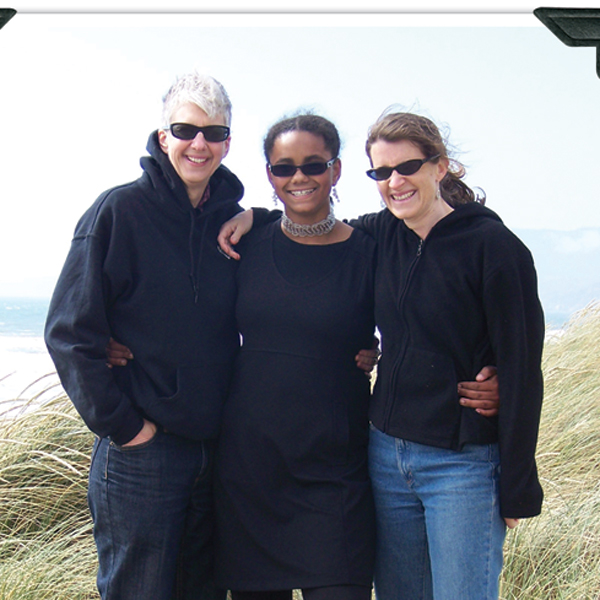It was the end of Mother’s Day, and Mariah was climbing out of her bath. She had made the holiday rich with the hand-illustrated, carefully lettered cards that only a six-year-old can make. As I dried her off, we chatted about the antics of her bath toys — a little pink frog, a prickly blowfish, two perky ducklings. The air in our tiny bathroom was warm and moist as I smoothed her arms and legs with coconut lotion.
Quietly, she observed, “It’s better to have moms than to have no mom.” I eased her flowered nightie over her damp head. This was our first Mother’s Day together. The three of us — two moms and our little daughter — had been knitting ourselves into a family for just 10 months.
While the moments when Mariah is grateful for our family sustain me, it’s the moments when she takes us for granted that tell me we’re doing something right as parents. She’s 13 now, and when I tell her I love her, she sometimes sighs with affectionate exasperation and rolls her eyes. “I know that. You’ve only told me, like, a million times.”
No one strives to raise an entitled child, but Mariah once lacked any sense of entitlement to security or love. Countless times during the early years of our family, as she climbed around on the playground, cavorted across the mat in gymnastics, or lined up behind her teacher to go into school, she’d lose her footing in this new life. Her eyes would dart, unsure that anyone was keeping track of her, wondering if she were alone again. Every time my partner or I caught her eye, we were trying to teach her to take us for granted.
These days, we’re all supposed to be practicing, and teaching our children to practice, gratitude. Grateful people are healthier, happier, and more connected to other people. Yet when I think about helping Mariah cultivate gratitude, I choke on the common belief that adopted kids should be especially grateful.
I have a complicated relationship with gratitude myself. I am profoundly grateful that I get to be Mariah’s mother: kissing her goodnight, helping her with homework, arguing about her messy bedroom, and staying with her through hard times. Yet I have to let that gratitude live alongside the knowledge that it would have been easier for her if her original parents had been able to raise her. Gratitude in adoptive families is tangled with strands of what might have been, and the best and worst parts of what is.
We manage gratitude in small ways. Every night before dinner, the three of us clasp hands and take turns saying something good about the day. “Laughing with my friends” is one of Mariah’s usual highlights now that she’s in seventh grade. For us parents, it’s often a good run, getting time to relax, or accomplishing something at work. On most evenings, someone mentions “being together” as the best part of the day.
Lately, I’m most grateful for the moments when I’m able to hold it all in my cupped hands: the wonder of being Mariah’s mother, and the brokenness that lies behind her need to have been adopted to begin with; the ways our love can heal her, and the losses that persist in spite of that love. I’m grateful that the little girl who used to play with bath toys — the one who noticed that it’s better to have moms than to have no mom — feels my love deeply enough to roll her eyes at me.



